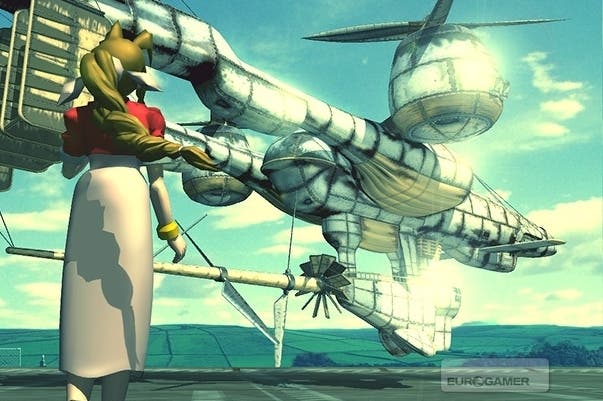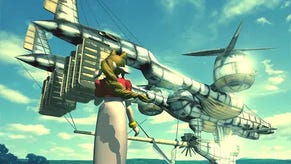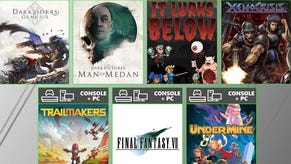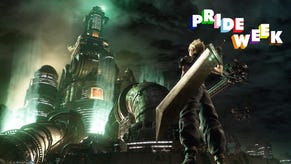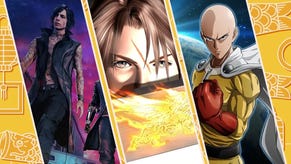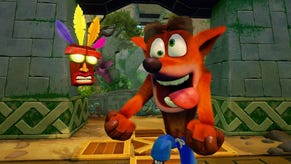Final Fantasy 7 retrospective
The game that killed Squaresoft.
This is a retrospective in the truest sense. I've switched on Final Fantasy 7 since its re-release on PSN a few years ago, but never played past the opening section of Midgar - an opening that, at the time of first playing, I thought was the game itself. The PS3 doesn't take PS1 memory cards, of course, so I can't resurrect my Avalanche crew, every single one at max level, while the treasured materia and weapon collection remains out of reach - nevermind my thoroughbred chocobos. Some games you can only play once.
Over time this gives distance to how you think about it. Final Fantasy 7 has never been loved for the right reasons; conversations focus overwhelmingly on a single moment that in its grand scheme felt largely irrelevant. I'm referring, of course, to the death of Aeris, the sweet flower girl who joins your party in the game's early portion and then, at the end of the first of three discs, is killed by arch-baddy Sephiroth.
It is a powerful scene, to be sure, and the wide range of response shows it clearly affected a lot of players deeply. Or did it? There's a certain bandwagon-jumping quality to accounts of Aeris dying, almost as if people want to reassure themselves that games can inspire emotional reactions.
I suppose there was something of an emotion. I was a little sad that I'd put in time levelling up this character and she was gone - which you could argue interweaves mechanics with the narrative, but that's one hell of a blunt club. And the important fact with Aeris's death is not the thing itself, but that it came to be perceived as a watershed moment.
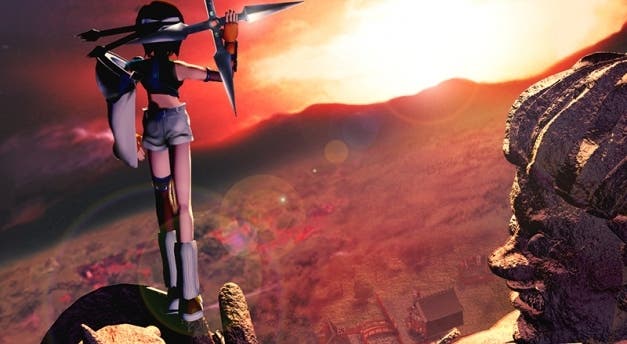
This could only have happened in the context of Final Fantasy 7, a $45 million production with a US marketing budget of over $100 million - the RPG that, to be sure, cracked the western market, but had a lot of help doing so. I always saw Final Fantasy 7's success as a key milestone in the modern gaming fetish for cinematography, as opposed to cinematic experiences.
This is an emotional argument rather than a logical one, simply because it's impossible to prove. There had been FMV before, of course, and the distinction may seem cute. But in its crude separation of main narrative from the game's body, with that ad campaign based on non-playable footage, Final Fantasy 7 was a watershed. It is genius; produce a huge RPG with deep and layered systems, as Squaresoft always had, but sell as an action movie. And it worked.
It seemed to, at least. Final Fantasy 7 has sold over ten million copies since release, the most successful entry in the series, and at the time was the precursor to a truly golden PlayStation era for Squaresoft, with games like Final Fantasy Tactics, Vagrant Story, Xenogears, Ehrgeiz, and more. And under the cover of those cutscenes Final Fantasy 7 had smuggled one of the deepest RPGs ever made into so many hands - so many, indeed, that a popular rumour tagged it as the most-returned game in history.
Looked at simply as a set of RPG systems, the scope and complexity of Final Fantasy 7 is incredible. Its Materia system opened up characters to pursue whatever expertise you wanted, making levelling a secondary consideration to the pursuit of an ultimate loadout. These stones are basically a huge set of swappable skills and magic that start off complementing your character builds but end up dominating them - and, by levelling Materia, individual stones can be reproduced. It's a beaut for three reasons: it is flexible, exploitable, and revels in overkill.
"I adore Final Fantasy 7 when I'm waxing nostalgic, but feel murderous when considering its legacy."
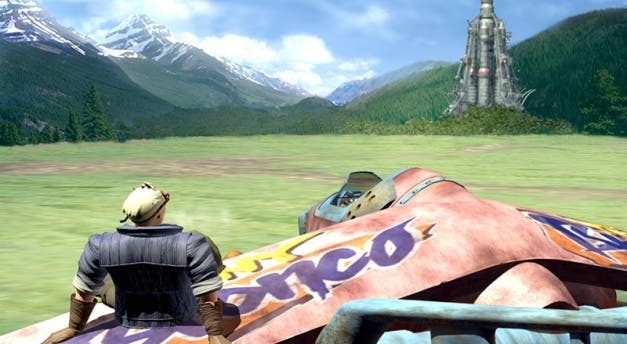
Playing through and levelling up gave ample opportunity to improve and reproduce Materia - meaning eventually your group could be set up almost to auto-battle, with little feedback loops demolishing any enemy foolish enough to attack. The damage you could deal in a single turn became insane - not Disgaea levels, but certainly enough to destroy almost anything in the game.
That thing about Midgar being the whole game? I spent days exploring every nook and cranny of Final Fantasy 7's opening. Exploration was one of the real narrative tools in action throughout - much later, for example, characters like Yuffie and Vincent will only be found by those who look. Even later, going to the right places with the right party members can trigger different events; returning to Cosmo Canyon with Red 13, or taking Cid and Cait Sith to the golden saucer. Little details like this, layers that build up over time for the dedicated to notice, are the weaves that give a world texture. Final Fantasy 7 has lots of great stories; it's just that none are in the cutscenes.
Here's an interesting thing: look at the gamefaqs page for Final Fantasy 7, and notice how many 'In-depth guides' there are - in other words, FAQs dealing with a singular aspect. Chocobo breeding (in-depth or simple?) and glitches, goodies alongside missable items, a mental guide to an early dating minigame, all rubbing shoulders with exhaustive GameShark-based exhumations. Whatever else you want to say about Final Fantasy 7, it did not lack substance.
The title is still by a distance the largest-selling entry in the series, standing proud at ten million sold - and much of the marketing emphasis was on the then-incredible FMV. Much of the critical reaction too, then and now, focuses on the parts of the narrative delivered through FMV. And when you think about it, what an extra-scarlet red herring that must have been for Squaresoft.
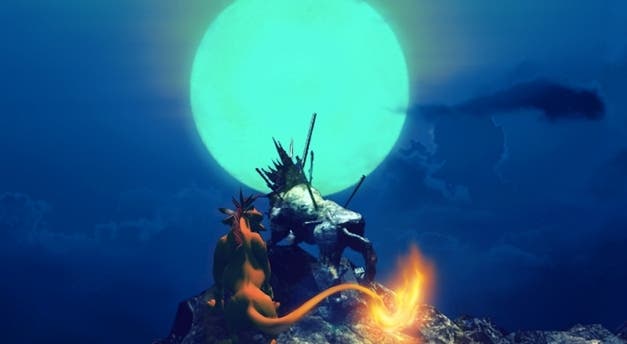
Final Fantasy 7 was at the start of a golden era on the PlayStation, but it was also the beginning of the end for the company. The western success, and what it was attributed to, were surely the key factors behind the disastrous formation of Square Pictures and production of Final Fantasy: The Spirits Within, a $137 million CGI movie released in 2001 - which it's fair to describe as an overlong cutscene. It flopped so hard that it finally forced and indeed almost scuppered Squaresoft's long-mooted merger with Enix in 2003.
This is the nadir of the obsession with filmic storytelling. I adore Final Fantasy 7 when I'm waxing nostalgic, but feel murderous when considering its legacy. It's an exceptional production, a game born of extraordinary vision and deeply ingrained RPG talent, a near-faultless Trojan horse bearing all the seeds of Squaresoft's self-combustion. Even now, when suffering through Final Fantasy 13s linear, cutscene-heavy slodge, the dead hand lingers. Square Enix still believes Final Fantasy's defining qualities are narrative and non-interactive cutscenes. So does much of the series' fanbase to be fair, yet they're an albatross.
When will we see the next Final Fantasy game that is, first and foremost, a game? A parallel universe perhaps. One where Final Fantasy 7's influence came from the depths rather than the surface. One where Final Fantasy 7 was celebrated for its overworld design and interlocking systems rather than the flower girl. One with more perspective, of a sort, than our own; where whole generations of games will go on chasing a dead end to the grave.
